The forces of former Tuareg separatists, who have not been active in Niger for a long time, could be used by the French in a possible intervention, which remains a possibility. The former rebel leader Rhissa Ag Boula, a prominent activist in the Tuareg uprisings in 1990 and 2007, launched a movement last year opposing the military government that came to power in a July 26 coup. This became the first resistance movement against the new government. But did it form on its own? Was the long-forgotten revolutionary able to enter the political field without anyone’s help? Or are the Atlanticist countries going to use the Tuareg factor not only in Mali, but also in Niger, to destabilize the region and overthrow the new anti-Western government?
History of the Tuaregs in Niger
The Tuaregs are an ancient Berber people traditionally living in Mali, Algeria, Niger, Libya and Burkina Faso. Unlike many other peoples of the region, the Tuaregs have retained some traditional principles: a ban on men walking with their faces naked, matriarchy, monogamous marriage, despite the general practice of polygamy in Islam. Women enjoy a privileged position in Tuareg society; important decisions are mainly made by the leader’s mother. The Tuaregs also preserved the ancient language – Tamashek, which allows them to feel like a separate people, separate from Libyan.
The term “Tuareg”, an Arabic word meaning “forsaken by God”, has negative connotations, but they call themselves “Imoshag”, which means “free people”. Tuareg society is highly stratified and consists of several castes: nobles; imajeren (‘the proud and free’); imrad (‘free but subordinate’); ineslemen, the religious caste; and ikelan, slaves. The Tuareg are primarily a nomadic people who lack a socio-political model with a strict vertical, so the Tuaregs never had their own statehood, but at the same time actively resisted integration into other already existing political systems. That is why it is difficult to name the number of their ethnic group. Estimates range from 2 to 2.5 million people. Most of the Tuaregs live in Mali and Niger; in Niger there are about 1.4 million.
In the western regions of Niger, the Tuaregs are traditionally strong and make up a significant part of the population. The Tuareg began a continuous migration to the southwest in the seventh century after the Arab conquest of the Maghreb, arriving in Niger from the eleventh century onwards. In modern Niger, the Tuaregs make up 9% of the population and mainly live in the north of the country in the Agadez region (named after the ancient state), as well as in the Niger River valley. It is important to pay attention to the fact that the Tuaregs of Niger form a single community with the Tuaregs of neighboring Mali, Algeria and Libya.
Tuareg uprisings 1990-1995 and 2007-2009
With the adoption of a multi-party system in some African countries, Tuareg nationalists began to advocate for their ethnic rights within large states. Niger settled initial claims of secession by creating a Ministry of Nomad Affairs. But the 1991 National Conference, which ushered in Niger’s multi-party system, openly rejected Tuareg secessionist claims. In response, the Tuaregs formed the Front for the Liberation of Air and Azawad (FLAA), under the leadership of political activist Rhissa Ag Boula, to push for the withdrawal of the Nigerian army from the north and the creation of a federal republic.
In the five years since 1990, several Tuareg uprisings broke out in Niger. On April 15, 1995, the peace “Ouagadougou Agreement” was signed, and in 1996 a coup d’etat took place in Niger and Rhissa Ag Boula began his political activities in the government of the country under President Ibrahim Bar Mainassar: from 1996 to April 1999 he served as Minister of Tourism of Niger and advocated the expansion of international tourism in the Agadez region. He was arrested in 2004 on murder charges but was released 13 months later after the charges were dropped.
Clashes with the Tuaregs continued, and two more peace agreements were concluded in 1997 and 1998. After the 1999 elections, tensions between the government and the Tuaregs eased somewhat, although there were violent incidents between Toubou and the Tuaregs in 2003. In 2007, there was a complete breakdown in relations between the former rebels and the government. Combined Tuareg forces launched attacks on the government and mining companies in the north and abandoned the 1995 agreements.
While the first uprising was broadly focused on political and economic autonomy from the central government, the second was a reflection of discontent and the role of the Tuareg in Niger’s new dispensation. The second uprising was led mainly by The Nigerian Justice Movement (MNJ), led by Aboubacar Alambo, Aghali Alambo and Amoumane Kalakoua and supported by the Restoration Forces Front (FFR), led by Ag Boula. The MNJ was composed of Tuareg soldiers who deserted the army after their integration in 1995, former FLAA rebels and youth.
In particular, MNJ took up arms because it said the government had failed to properly include Tuareg leaders, mishandled the 2005 food crisis and failed to redistribute a fair share of resources derived from uranium mined in the Tuareg region of Agadez Annual production of 3,000 tons of uranium provides 72% of the country’s export earnings. Although many countries are involved in northern Niger, including France, China, Canada, the UK, Korea, South Africa and Australia, France is the largest investor. The French company AREVA, present in Niger since the early days of independence, is the world’s largest nuclear builder and the key to France’s nuclear independence.
Nigerian Tuaregs and Jihadists
In 2009, internal divisions arose within the MNJ and some members rejected Ag Alambo’s leadership. However, peace talks mediated by the Gaddafi regime have achieved some success in reaching a disarmament agreement between the rebels and the government. This, together with some conciliatory measures by the Niger government, helped reduce the conflict with Niger’s security forces. However, in subsequent years, the Tuareg continued to struggle with drought, limited access to government services, as well as insecurity and the threat of violence from armed groups operating near the border with Mali.
In 2011, Aghali Alambo helped Saif al-Islam Gaddafi and his brother Saadi escape to Niger. In Niger, high-ranking Tuaregs from Gaddafi’s army took refuge among the local Tuaregs, including Ali Kanna, who led the rebel forces in Sebha after the fall of their leader. On September 6, 2011, a large column of pro-Gaddafi Tuaregs from the Kanna’s Southern Battalion crossed the Algerian border into Niger. According to rumors, Kanna was part of this convoy, and Gaddafi himself and his son Saif al-Islam were supposed to join Kanna on the way to Burkina Faso.
In Niger, unlike Mali, separatist sentiments among the Tuaregs are not as strong. They became associated with the concessions made during the peace deal brokered by Mohammed Gaddafi. At the same time, ISIS terrorists are active in the main regions of the country. In 2019, 7 Tuareg leaders became their victims. Islamic State terrorists now pose a serious threat to Niger. In 2023, jihadists killed dozens of soldiers in the west of the country, near the border with Mali. The “three borders” region between Niger, Mali and Burkina Faso is regularly the site of attacks by militants linked to ISIS and al-Qaeda.
Since the 2023 coup in Niger, attacks on civilians and military personnel by Islamic terrorists have increased. According to the Armed Conflict Location & Event Data Project (ACLED), in the summer, a month after Tchiani came to power, attacks from terrorist groups increased by 42%. While in Niger the Tuaregs are also victims of Islamists, in Mali the Tuaregs are actively collaborating with al-Qaeda. Among them is Iyag Ag Ghali, a Tuareg militant and leader of the Support Group for Islam and Muslims (JNIM). Also on the list are six Tuareg leaders belonging to an alliance of armed groups who renewed their rebellion against the state after Bamako’s abrogation of the 2015 peace treaty. All of them are wanted in Mali.
Possibility of a new French intervention
The security situation, including jihadist attacks and the rise of former Tuareg rebel leader Rhissa Ag Boula, could become a new pretext for direct intervention by the French and their allies. French and American proxy groups may be behind the increasing attacks by jihadists, who are not yet planning to leave Niger, unlike Mali.
The second pretext for intervention could be the restoration of the “legitimate” President Bazoum. In 2021, a completely pro-French politician, an ethnic Arab from Fezzan, Mohamed Bazoum, close to former President Mahamadou Issouf, whose successor he became, becomes the President of Niger. On July 26, 2023, Mohamed Bazoum was overthrown by the Niger armed forces under the leadership of Brigadier General Abdourahamane Tchiani, a member of the Hausa ethnic group. The rebels captured Mohamed Bazoum and charged him with corruption and orientation toward colonial France. At the same time, the rebels proclaimed a course towards rapprochement with the anti-French anti-colonial regimes of Mali and Burkina Faso, oriented towards a multipolar world and rapprochement with Russia.
The military intervention of France and its allies, if it takes place, will be accompanied by attempts to destabilize the Sahel zone using Tuareg and jihadist factors. Tuareg groups currently serve as a base for extremist movements in the region, notably the Islamic State in the Greater Sahara and al-Qaeda. However, even without intervention, external forces may try to fuel instability in Niger, which could lead to an escalation of tensions throughout the Sahel, where the same people live and the same cross-border groups operate.
Theoretically, the threat can be neutralized by Niger turning to new partners. Obviously, they could be Russia and the Wagner Group, which have proven themselves in the Central African Republic and Mali. However, Türkiye is also actively trying to establish itself in the region. Ankara is developing ties with countries that support Niger in the face of possible intervention – Mali and Burkina Faso, which is a major consumer of Turkish military products.







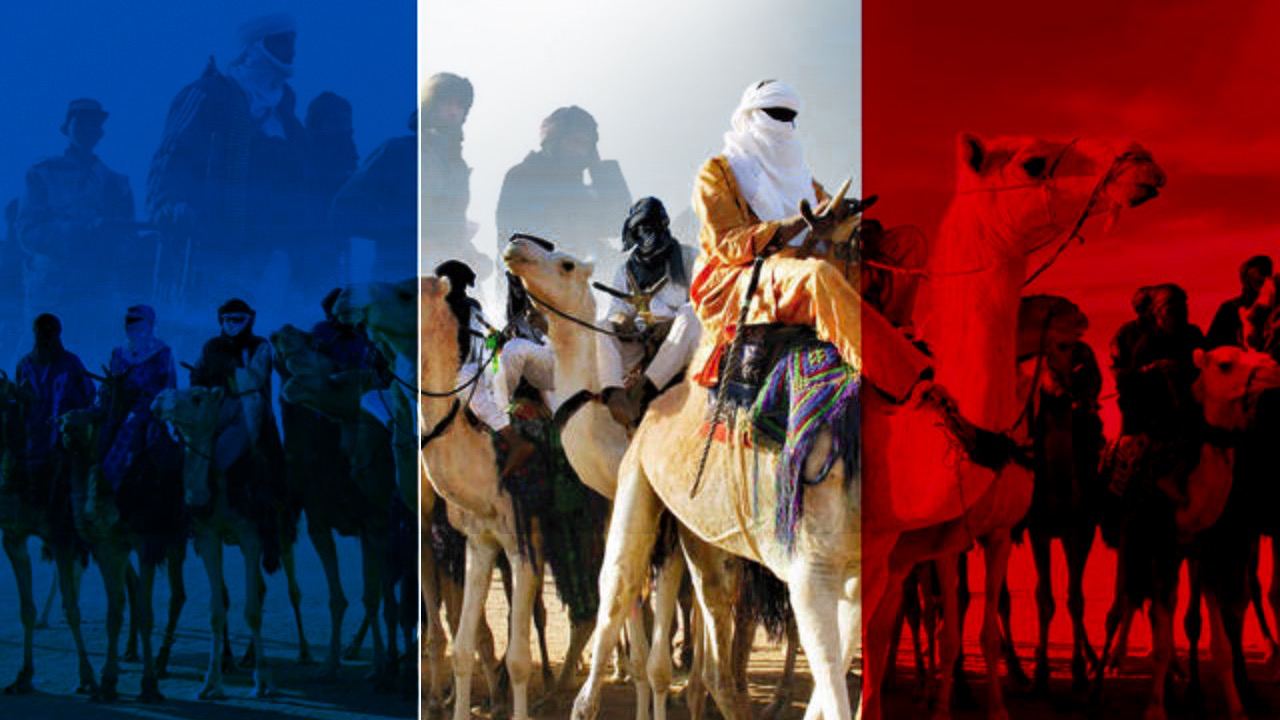
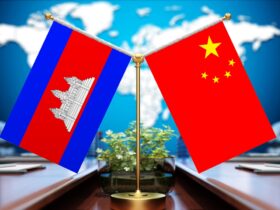

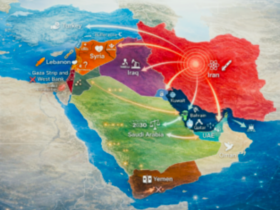
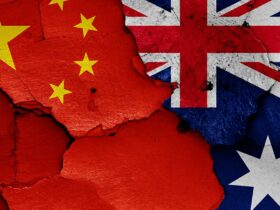

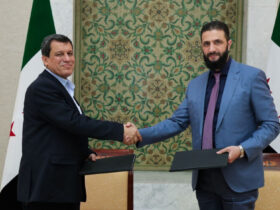

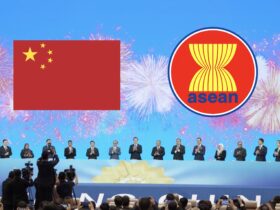

Leave a Reply